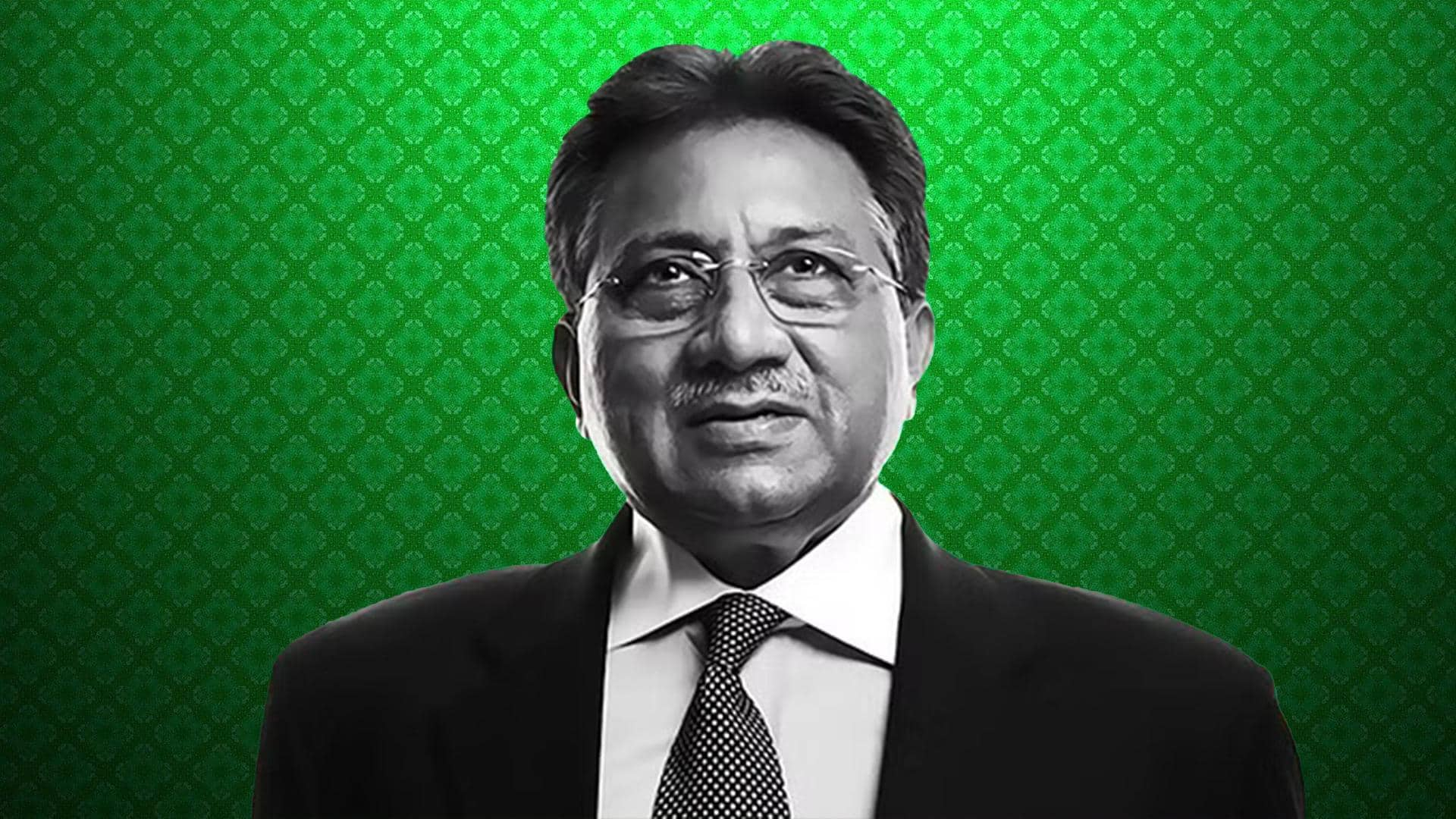
Pervez Musharraf: Pakistan's military ruler and president to proclaimed absconder
What's the story
Former Pakistani President Pervez Musharraf—who had been living in self-exile in the UAE since 2016—passed away on Sunday after a prolonged battle with amyloidosis.
After serving in the Pakistan Army during sensitive times, he went on to topple former PM Nawaz Sharif's government in a bloodless coup after the 1999 Kargil war with India and later became Pakistan's 10th president.
Here's everything about Musharraf.
Context
Why does this story matter?
Musharraf seized power in Pakistan in 1999 and declared himself the president in 2001.
In 2007, his dictatorship faced a crisis when he suspended Pakistan's Constitution and imposed an emergency.
His party lost elections in 2008 to a coalition led by Sharif and Benazir Bhutto's widower Asif Ali Zardari.
Notably, Musharraf faced capital punishment—later annulled—over his alleged role in former PM Bhutto's 2007 assassination.
About
Look at his early life and education
Musharraf was born in 1943 in Delhi (undivided India) and moved to Pakistan with his family after the partition.
He was a student of Karachi's Saint Patrick's School. He later studied mathematics at Forman Christian College, Lahore, and the Royal College of Defence Studies in the United Kingdom.
He reportedly joined the army at 18 and rose through the ranks to become its chief.
Military president
Toppled former Pakistan PM Nawaz Sharif in 1999 bloodless coup
Musharraf was considered as the mastermind of the 1999 Kargil war, as he reportedly launched it without the Pakistani civilian government's approval.
Then-PM Sharif's aides had claimed Musharraf sought to derail talks with India through this operation.
After India won the war, the former dictator seized power in Pakistan, ousting Sharif in a bloodless coup, and later declared himself as Pakistan's president in 2001.
Emergency
When Musharraf resigned as army chief following uproar
The former president suspended Pakistan's Constitution in November 2007, blaming "extremist actions" by terrorist organizations for his decision.
However, Musharraf holding both the positions of army chief and president, caused a huge commotion, compelling him to resign from the former the same month.
But he remained the president and named his intelligence chief, General Ashfaq Pervez Kayani, as the head of the army.
Electoral defeat
Musharraf's party routed in general election
Musharraf reinstated the Constitution on December 15, 2007, but only after drafting laws to protect himself from any action.
In 2008, his party Pakistan Muslim League-Q (PML-Q), was defeated in the general elections, paving the way for the next president, Zardari.
Following his defeat, Musharraf formed a new party, the All Pakistan Muslim League (APML), in 2010 but failed to gain traction with voters.
Downfall
Former dictator's fall started with Sharif's comeback
In the 2013 parliamentary elections, Musharraf's APML secured only one seat.
On the other hand, his longtime adversary Sharif was elected, and he immediately charged Musharraf with treason.
He was questioned about his actions in November 2007, including the suspension of the Constitution, and was indicted in the Bhutto assassination case the same year.
By September 2014, the prosecution presented all of its evidence.
Proceedings
Musharraf sentenced to death, declared absconder
During the trial of the treason case, Musharraf left the country for treatment in Dubai in 2016.
Since he didn't appear despite repeated summons, he was declared an absconder, and a special court directed the Federal Investigative Agency (FIA) to arrest him.
It awarded him capital punishment in 2019, making him Pakistan's first-ever military ruler to be sentenced to death. It was later annulled.
Indo-Pak relations
Musharraf's 'four-point' proposal to India to solve Kashmir issue
In 2001, Musharraf led Pakistan's delegation at the Agra Summit and agreed to resolve several long-standing issues with India, including the Kashmir crisis.
Agra Summit is considered a crucial but missed opportunity in Indo-Pak relations where Musharraf proposed his "four-point" Kashmir solution, which was reportedly acceptable to then-Indian Prime Minister Atal Bihari Vajpayee, too.
However, the talks failed hours before the deal signing ceremony.